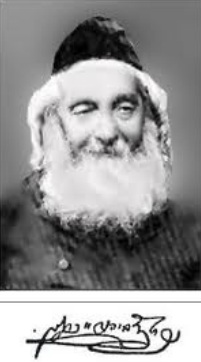WHAT IS YOSHER?
It's about Truth, not Business
|
The Netziv and the Meaning of Yosher
Rabbi Rudski was fond of repeating a principle he quoted from the Netziv, Rabbi Naftali Tzvi Yehuda Berlin. In the introduction to his commentary to the Book of Bereishis [Genesis] the Netziv asks, "Why is this Book also known as - The Book of the Yeshorim? Why do Avraham, Yizchak and YaAkov merit the title of Yosher? In what way is Yosher different to Tzaddik and Chassid?" He answers by explaining that Gd, is known as a Yosher in the Book of Devarim [32:4] in which guise He is recognised for having justly punished the Jews in the times of the destruction of the second temple. Although the Jews at that time were recognised as Tzaddikim, Chassidim and scholars of the Torah, nevertheless they were punished in a most severe fashion because they were not Yeshorim. The Gemara identifies this with SinAs ChiNam, unjustified hatred. They viewed one another with contempt simply because they had different ways of serving Gd. They may have meant well, they may have been trying to serve Gd in the truest possible manner, but their attitude is utterly wrong and destroys the fabric of the world. This is where our forefathers excelled; they related to everyone, even pagan idol worshippers, with respect, affection and concern for their welfare. They understood that this is HaShem's world and it must be maintained and promoted. Typical of this attitude was Avraham Avinu's extreme intervention on behalf of the people of Sodom, a people who were committed to denying HaShem and who were evil beyond description and who Avraham hated for their evil. So too we observe that Yitzchak after having been humiliated by Avimelech was prepared to accept his meagre apology and restore their friendship. Similarly YaAkov spoke patiently and respectfully to Lavan who had tormented him for so many years. In fact our Sages say, "We would rather have the anger of our forefathers directed against us than the forbearance of their children." |
|
Kosher Is Important, Yosher Is Critical
Concern for integrity is a hallmark of the community that Rav Dr. Joseph Breuer cultivated in Washington Heights. Here is a typical example of Rav Breuer’s outlook and his priorities. Sanctification of Social Relationships In 1953 the butchers of the Kehillah petitioned that they wished to sell only Glatt meat. Rav Breuer was concerned that that this might impose undue financial hardship since such meat was more expensive. He wrote, ”Kosher is intimately related to Yosher. God in His Torah not only demands that Kashrus be observed thereby sanctifying our physical enjoyment; He also and perhaps more importantly insists on the sanctification of our social relationships. This requires the strict applications of justice and righteousness which avoid even the slightest trace of dishonesty in our business dealings and personal life. Gd in His Torah not only demands of us that we love our neighbour by concerning ourselves with his welfare and property but it further insists on conduct of uncompromised integrity, we must be Yosher, which includes the spirit of the Law, the ethical principle of honesty. It is only by this standard that we can rightfully hold the title of Yeshurun. Intensive Campaign for Glatt Yosher We would welcome a campaign to link a drive for Glatt Kosher with an equally intensive campaign to champion Glatt Yosher. This is the heart-rending entreaty of the Prophet Tzefanya, "The remnants of Israel will do no iniquity, nor speak lies, neither will a deceitful tongue be found in their mouth."(3:13) [Time to Build p 47] Yosher: Social, Emotional and Community Welfare One can not but help contemplate that Rav Breuer was concerned more for the social, emotional and community welfare with such matters being Yosher, than he was concerned for what may have been a superficial enthusiasm for technical matters of Kosher. Rav Breuer’s concerns are perhaps more relevant today than they were in 1953. Rabbi Aharon Nesher, chairman of Maskil L’David declares that consumers looking for Kosher products are confused by the enormous number of certifiers. "Each certifier boasts its own values but there is no independent manner of verifying any of the stated claims. Those consumers who consider themselves well informed, base their knowledge on information that can not be described as anything better than rumour. Clearly, in these circumstances selecting a Kosher certifying agency as being more reliable than another, is like trying to guess the winning numbers of the lotto."
Nesher told Ynet that the Kashrus institutions must alter the complexion of Kashrut to make it more transparent and “more based on truth, and less based on business”. The rabbi also said that he believed the increase of consumer power depended on the information consumers have. “We want the public to know that Kashrut is a matter of Halacha and that there are quite a few things that do not require a certifier's approval. For example, consumers should know that mineral water does not require a certificate of Kashrut." When consumers are ill informed they are susceptible to being mistreated. It is a blight upon us that foods that do not require a certificate, and even non-foods such as toilet cleaners, sell better with a Kashrut stamp. Kashrut has become a toy used as a cheap, deceptive marketing hook. Consider the following from a prominent Kosher agency: SEE Over the past several decades the kosher industry has grown considerably. Food companies recognizing the profitability of the kosher market have pursued kosher certification in an effort to increase marketability and sales of their products. What has been especially remarkable is that the pursuit of kosher certification has not stopped with food. It is not unusual to find nowadays a hechsher on non-food items. Are there really any viable kashrus concerns with something that is inedible? This article will focus on dishwashing soap. |
|






